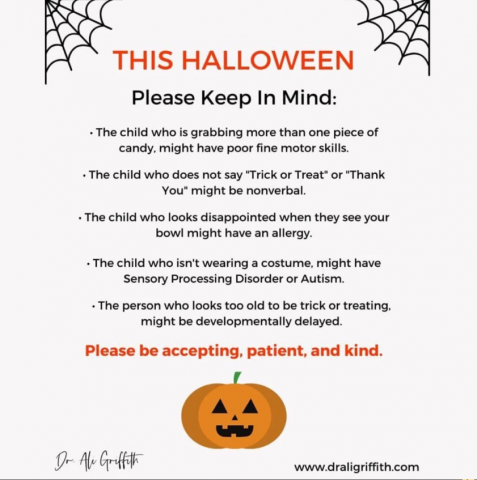
Month: October 2021
Developmental Language Disorder (DLD) is a neurodevelopmental condition that is very common, affecting approximately 7% of the population. The cause of DLD is generally unknown. A person with DLD can have difficulty talking and understanding spoken language. Spoken words and sentences can be challenging for people with DLD. DLD may also impact behaviour, attention, academic achievement, and peer relationships.
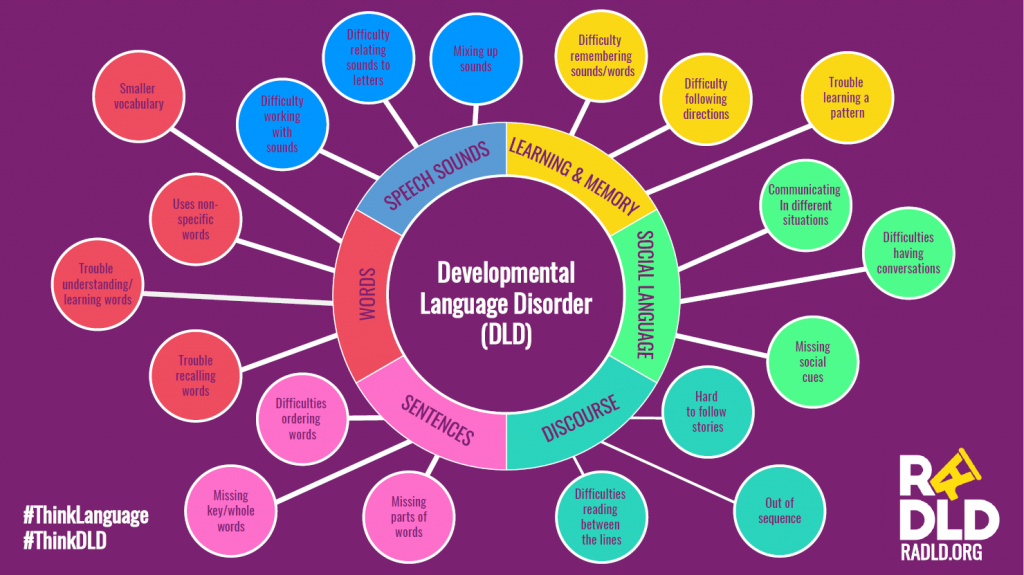
The Burnaby Speech Language Pathologists work with many students with DLD. We also support families and school teams.
For more information, please check out these resources:
For many students and families, transitioning back to school can be challenging. Part of the challenge is that all children are developing their executive function skills. These are the mental processes that allow us to plan, focus attention, remember instructions, and juggle multiple tasks successfully. Like an orchestra conductor or an air traffic controller, to do all this the brain builds the ability to filter distractions, prioritize tasks, set and achieve goals, and control impulses (self-regulation). While executive functions are emerging for all children, they can be more challenging for students with learning and behavioral disabilities. Executive functions have a major impact on a child’s academic and social participation and success.
There are many ways to help your child at home with developing their executive functions and independence. Try using visual reminders of the morning, after school and bed time routines. This can include something as simple as a written or drawn-out schedule on their bedroom door, the fridge or the bathroom.
- Keep the schedule somewhere everyone can see it.
- Look at it together often and celebrate when tasks get done – check it off!
- Have your child be part of making the schedule – they draw some of it; include favorite things; name it together e.g., “Kira’s Awesome Mornings”
- Try using a white board; window markers; or something basic like paper and felts. There are many schedules online or try making one on the computer with images your child chooses with you. It can be very simple. The power is that it is visual.
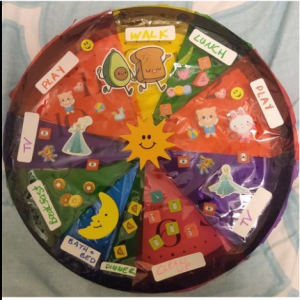
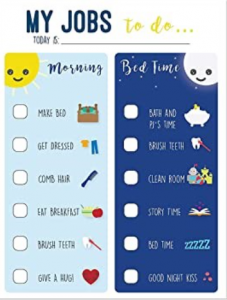
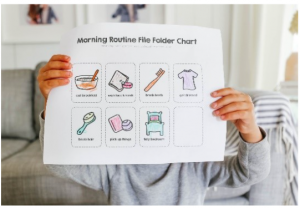
For more tips, check out our new executive functions page!